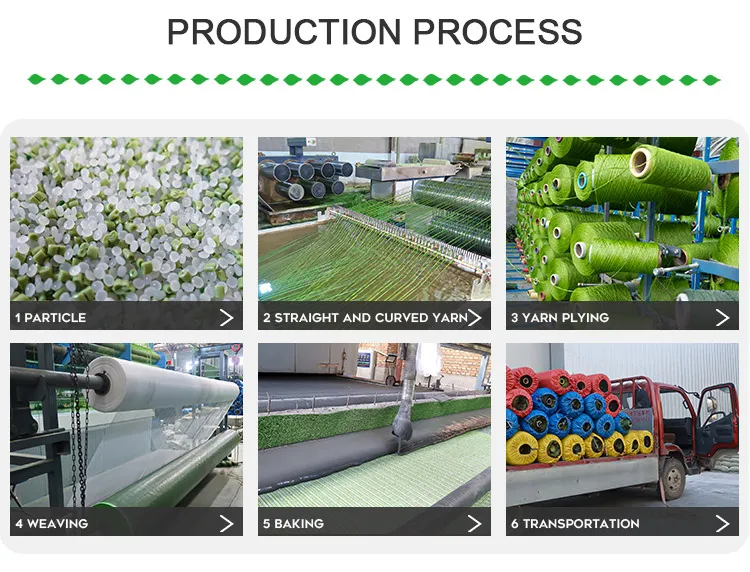
- Afrikaans
- Arabic
- Belarusian
- Bengali
- Czech
- Danish
- Dutch
- English
- Esperanto
- Estonian
- Finnish
- French
- German
- Greek
- Hindi
- Hungarian
- Icelandic
- Indonesian
- irish
- Italian
- Japanese
- kazakh
- Rwandese
- Korean
- Kyrgyz
- Lao
- Latin
- Latvian
- Malay
- Mongolian
- Myanmar
- Norwegian
- Persian
- Polish
- Portuguese
- Romanian
- Russian
- Serbian
- Spanish
- Swedish
- Tagalog
- Tajik
- Thai
- Turkish
- Turkmen
- Ukrainian
- Urdu
- Uighur
- Uzbek
- Vietnamese
laying artificial turf on soil
Oct . 10, 2024 16:59 Back to list
Laying Artificial Turf on Soil A Comprehensive Guide
Artificial turf, often referred to as synthetic grass, has become increasingly popular for both residential and commercial applications. Whether you want to transform your backyard into a low-maintenance lawn or create a vibrant sports field, laying artificial turf on soil can be an effective and attractive solution. In this article, we’ll guide you through the steps involved in the process, ensuring that you achieve the best results.
Understanding the Benefits of Artificial Turf
Before diving into the installation process, it’s crucial to understand the benefits of artificial turf. Unlike natural grass, synthetic grass requires minimal maintenance, eliminating the need for mowing, watering, and fertilizing. This leads to significant water conservation and reduces your carbon footprint. Additionally, artificial turf remains lush and green year-round, providing a perfect aesthetic for any landscape, regardless of the season.
Gather Necessary Materials and Tools
Successfully laying artificial turf on soil requires careful planning and the right tools and materials. You will need
1. Artificial Turf Rolls Choose high-quality turf that resembles natural grass. 2. Landscape Fabric To prevent weed growth. 3. Crushed Stone or Base Material For proper drainage. 4. Utility Knife For cutting turf to size. 5. Measuring Tape To measure the area accurately. 6. Shovel and Rake For leveling the soil. 7. Hammer and Turf Nails To secure the turf.
Preparing the Soil
The first step in laying artificial turf is to prepare the soil. Start by removing any existing grass, weeds, and debris from the area where the turf will be installed. You can use a shovel or a landscape edger for this task. Once the surface is clear, you should dig down about 3 to 4 inches to create room for the base material.
Next, compact the soil using a plate compactor or a hand tamper. This will ensure stability and prevent settling over time. After compacting, spread a layer of crushed stone or base material evenly across the area. Aim for a depth of 2 to 3 inches, then compact it again. Proper drainage is crucial to avoid pooling water, so make sure the base slopes away from any structures.
Installing Landscape Fabric
laying artificial turf on soil

Once the base has been compacted, it’s time to lay down landscape fabric. This fabric acts as a barrier to prevent weeds from growing through the artificial turf. Cut the fabric to size and lay it over the crushed stone, ensuring that it overlaps at the seams.
Laying the Artificial Turf
Now comes the exciting part—laying the artificial turf. Roll out the turf across the area you've prepared, allowing it to acclimate to the temperature for a few hours. This helps prevent wrinkles and ensures a smooth installation.
When cutting the turf, use a utility knife, making sure to cut from the backside to avoid damaging the fibers. Ensure that the seams of the turf align evenly. If you are using multiple rolls, it’s essential to avoid having seams exposed to heavy traffic.
Securing the Turf
After positioning the turf, secure it in place using turf nails around the perimeter and every few feet in the interior. Ensure that the nails are driven flush with the surface of the turf to avoid any tripping hazards.
Finishing Touches
Following the installation, you may want to add infill to the turf to enhance its look and functionality. Common infill materials include sand or rubber granules, which help keep the blades upright and improve drainage.
Finally, give your newly installed artificial turf a good brushing with a broom to help the blades stand upright and to distribute the infill evenly.
Conclusion
Laying artificial turf on soil can be a rewarding DIY project that transforms your space into an easily maintainable area. By following the steps outlined in this guide, you can ensure a professional-looking installation that provides beauty and functionality for years to come. Don't forget to enjoy your new green space, whether it’s for play, relaxation, or hosting gatherings with family and friends!
-
The Benefits of Artificial Turf for Indoors
NewsJul.15,2025
-
How Artificial Grass Suppliers Ensure Quality Products
NewsJul.15,2025
-
Artificial Grass and Pets: A Space for Relaxation
NewsJul.08,2025
-
Balcony & Outdoor Decoration with Artificial Grass
NewsJul.08,2025
-
Best Indoor Artificial Grass for Home
NewsJul.07,2025
-
Best Pet Turf for Dogs: Safe & Durable Artificial Grass Options
NewsJul.07,2025
Products categories









